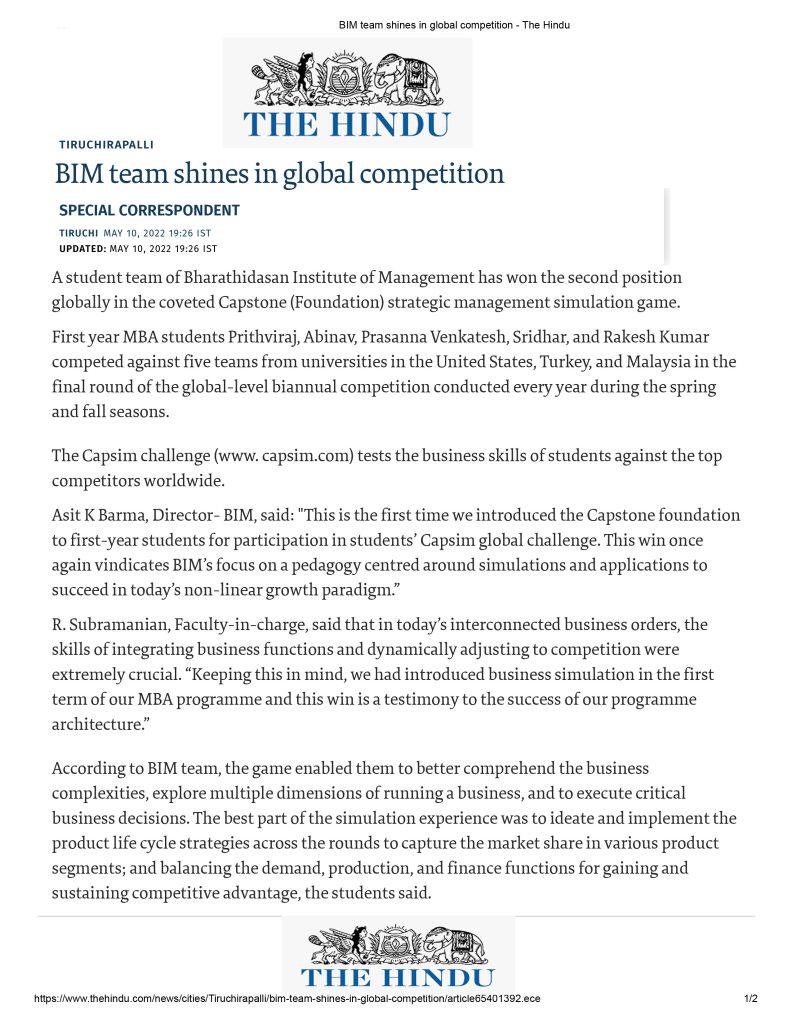A team of first-year MBA students, Prithviraj, Abinav, Prasanna Venkatesh, Sridhar, and Rakesh Kumar got the second position globally in the coveted Capstone (Foundation) strategic management simulation game. This global competition is conducted every year during the spring and fall seasons. Capstone simulation is one of the prestigious and most sought-after strategic management simulation games participated by Universities, colleges, and B schools across the globe. The team from BIM competed against five teams from Universities in the United States, Turkey, and Malaysia in the final round. The Capsim challenge (www. capsim.com) is a biannual competition to test the business skills of students against the top competitors worldwide. Both the qualifying and final rounds are scored based on the Balanced Scorecard. The teams with 6 highest scores move on to compete for the title in the finals.
Expressing happiness over this achievement, Dr. Asit K Barma, Director- BIM, said, this is the first time we introduced the capstone foundation to first-year students for participation in students’ Capsim global challenge. This win once again vindicates BIM’s focus on a pedagogy centered around simulations and applications to succeed in today’s non-linear growth paradigm.”
Lauding the efforts of the students, Dr. R. Subramanian, the faculty-in-charge commented “In today’s interconnected business orders, the skills of integrating business functions and dynamically adjusting to competition are extremely crucial at corporates. Keeping this in mind, we have introduced business simulation in the first term of our MBA program and this win is a testimony to the success of our program architecture.”
The students celebrating this achievement shared their experiences as: “This game enabled us to better comprehend the business complexities, explore multiple dimensions of running a business, to execute critical business decisions. And this helped us understand the basic concepts of business and improve our competency in integrating business functions. The best part of the simulation experience was to ideate and implement the product life cycle strategies across the rounds to capture the market share in various product segments, balancing the demand, production, and finance functions for gaining and sustaining competitive advantage.”


